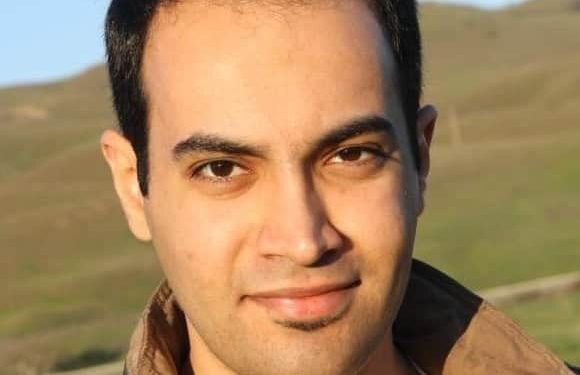
Human rights sources said that a Saudi court arbitrarily punished the humanitarian activist Abdulrahman Al-Sadhan today with 20 years in prison.
The sources stated that the Specialized Criminal Court decision also included preventing Al-Sadhan from travelling for an additional 20 years.
ALQST said that the decision against Al-Sadhan was issued in a trial that lacks fair trial conditions.
The human rights organization indicated that Al-Sadhan, a worker with the Red Crescent, was tried under the Terrorism Law and the Cybercrime Law articles, which contain loose articles that undermine the right to freedom of expression.
ALQST called on the Saudi authorities to release Abdul-Rahman Al-Sadhan and to drop all sentences issued against him.
A few days ago, the Gulf Center for Human Rights stressed the need for the Al Saud authorities to respect public freedoms, including freedom of expression on and off the Internet.
The Gulf Center stressed the need to ensure that all human rights defenders in the Kingdom are able in all circumstances to carry out their legitimate activities in the field of human rights without fear of reprisals and any restrictions, including judicial harassment.
The Center condemned the arbitrary trial of the activist Abdul Rahman Al-Sadhan on charges related to his peaceful activities on Twitter.
On March 3, the Specialized Criminal Court held the first session of the activist Al-Sadhan.
And human rights sources indicated that Al-Sadhan called his family one day before his trial to inform them of the session’s date.
Al-Sadhan’s father went to attend the session, but he was not allowed. Rather it was held in secret.
According to the Center for Human Rights, the Criminal Court (Terrorism Court) was established in 2008 to hear cases related to combating terrorism.
But it has since been used to pass harsh prison sentences against human rights defenders and other peaceful activists and to suppress freedom of opinion.
The Gulf Center for Human Rights said that after the session ended, his father was able to meet his son for only five minutes in the presence of a security officer for the first time.
And this after nearly three years of complete cessation since his arrest.
On March 11, the second session was held in the presence of his father after he requested to be the legal guardian in addition to the presence of a lawyer appointed by the court.
During the session, the indictment and evidence were presented based on tweets and confessions that he posted on his Twitter page.
According to reliable local reports, these confessions were extracted from him after he was tortured.
The court also refused to provide his father or the lawyer appointed by it with a copy of the indictment and evidence and only allowed them to read it quickly.
On March 17, the third session was held, during which the appointed lawyer delivered the defence response to the indictment. No date has been set for the next session.
On March 22, another secret session was held. His father, who is the legal representative, was not informed of it, and he was unable to attend it
The lawyer was informed of it at the last moment, but the session was over when he attended the session. The Public Prosecutor presented his objections to the defence’s response during the hearing.
On March 25, the fifth session took place, and although his father attended the court, he was not allowed to attend the session.
During the session, one of the public prosecutor’s accusations was that Al-Sadhan did not request the presence of a lawyer during his interrogation during the three years since his enforced disappearance, which is contrary to the truth.
The next trial is scheduled to take place on April 01, 2021.
On March 12, 2018, a Saudi security force arrested Al-Sadhan from inside the Saudi Red Crescent Society headquarters without a judicial warrant, and they did not give any reason for the arrest.
And in the capital, Riyadh, where he works as an aid worker.
Al-Sadhan, 37, is a graduate of the Business Administration Department of the University of Notre Dame in California.
He completed his studies at the end of 2013. He returned to his country the following year, according to his family, for his love for his country and his desire to contribute to building a prosperous future for everyone as one of the nation’s children.
The Gulf Center for Human Rights renewed its call to the Al Saud authorities to release Al-Sadhan after all the charges against him were dropped.